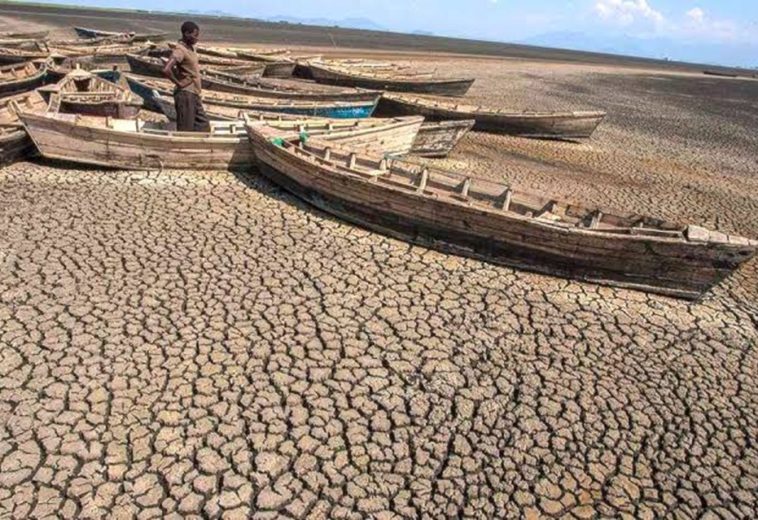Across Africa, violent conflicts, political instability, and terrorism continue to threaten stability and development. While many of the continent’s problems are deeply rooted in history, the African Union (AU) has increasingly become the focal point for addressing these issues. Since its formation in 2002, the AU has worked to shape solutions to the continent’s security challenges—offering a platform for conflict resolution, peacekeeping, and post-conflict reconstruction. But with mounting challenges and diverse member states, how effective has the AU been in achieving its core goal of lasting peace and security across Africa?
The Core Mission of the African Union: Peace, Security, and Stability
The primary objective of the African Union, as outlined in its founding documents, is to promote peace, security, and stability across the continent. The AU’s Peace and Security Council (PSC), established in 2004, plays a key role in overseeing and implementing the union’s policies on peace and security. The PSC’s mandate includes conflict prevention, peacekeeping operations, post-conflict reconstruction, and mediation efforts.
READ ALSO: The Role of African Union in Promoting Intra-African Cooperation
The African Standby Force (ASF) and the African Peace and Security Architecture (APSA)
Beyond the PSC, the AU’s Peace and Security Department coordinates several mechanisms designed to address Africa’s security challenges. Two important initiatives are the African Standby Force (ASF) and the African Peace and Security Architecture (APSA).
The ASF is a rapid-response force designed to deploy peacekeeping missions in conflict zones. APSA, on the other hand, provides a framework for a coordinated, continent-wide response to crises, enhancing peace and security in Africa through integrated efforts.
“African Solutions to African Problems”: The AU’s Unique Approach
A cornerstone of the AU’s approach is the principle of African solutions to African problems. This philosophy underscores the importance of African-led initiatives in resolving conflicts and preventing violence. By addressing challenges from within, the AU ensures that interventions are not only effective but also culturally sensitive and tailored to the specific political and social contexts of the continent.
Diplomatic Efforts: The AU’s Role in Conflict Resolution
Diplomacy has long been at the heart of the African Union’s efforts to promote peace and security. Over the years, the AU has played a pivotal role in mediating conflicts and facilitating peace agreements across Africa. Using its conflict resolution mechanisms, the AU has brokered peace deals in several nations, including Sudan, South Sudan, the Central African Republic, and Côte d’Ivoire.
The African Mediation Platform
One of the key tools in these efforts is the African Mediation Platform, which brings together experienced mediators, former heads of state, and peace experts to facilitate peace talks. Through this platform, the AU has played an instrumental role in reducing violence and preventing conflict escalation.
The Role of Military Intervention: The African Standby Force (ASF)
Although diplomacy remains central to the AU’s peace initiatives, there are times when military intervention becomes necessary. The African Standby Force (ASF) enables the AU to respond quickly to crises, often with the support of regional organisations like the Economic Community of West African States (ECOWAS), the East African Community (EAC), and the Southern African Development Community (SADC).
Counterterrorism Efforts: Combatting Extremism and Regional Instability
Among the most pressing challenges Africa faces today are terrorism and violent extremism. Groups such as Al-Shabaab in the Horn of Africa, Boko Haram in West Africa, and ISIS affiliates in the Sahel have caused widespread instability, making counterterrorism efforts crucial.
The AU has emerged as a leader in coordinating counterterrorism initiatives across the continent. The African Charter on Democracy, Elections, and Governance is one of the AU’s key tools in promoting political stability and curbing the rise of extremist groups. This legal framework supports African nations in upholding democratic principles, which helps to mitigate the conditions that allow extremism to flourish.
The G5 Sahel Joint Force is another example of the AU’s counterterrorism strategy. Comprising Burkina Faso, Chad, Mali, Mauritania, and Niger, the force was established to tackle terrorism and organised crime in the Sahel region. Supported by logistical and financial contributions from the AU and the international community, the force has been a critical tool in combating the rise of extremist factions in the region.
Post-Conflict Reconstruction and Development (PCRD)
The AU also places considerable emphasis on post-conflict reconstruction and development (PCRD) to ensure that peace endures once fighting ceases. The AU’s Post-Conflict Reconstruction and Development Framework offers a comprehensive roadmap for rebuilding war-torn societies, focusing on governance, economic recovery, human rights, and reconciliation.
Through collaboration with the United Nations (UN), the World Bank, and various international NGOs, the AU ensures that peacebuilding efforts are both inclusive and sustainable. Its involvement in post-conflict reconstruction in Liberia and Sierra Leone after their civil wars exemplifies the AU’s role in rebuilding nations and laying the groundwork for long-term peace.
Challenges Facing the African Union in Peace and Security
While the African Union has made substantial progress in its mission, several challenges remain. Key obstacles include:
• Political will of member states to fully commit to AU-led interventions
• Mobilising sufficient resources for peacekeeping operations
• Ensuring better coordination between the AU and other regional organisations
Enhancing the AU’s Impact: Strengthening Partnerships and Institutional Capacity
To increase its effectiveness, the AU must strengthen its partnerships with regional organisations, the private sector, and international stakeholders. Additionally, the AU needs to continue building its institutional capacity and improve coordination to ensure the long-term sustainability of peace efforts.
The African Union’s commitment to promoting peace and security across the continent is steadfast. Through diplomatic interventions, peacekeeping missions, counterterrorism efforts, and post-conflict reconstruction programmes, the AU is actively working towards a peaceful, stable, and prosperous Africa. As the continent continues to face evolving threats, the AU’s ability to act as a united force for peace will be crucial in determining Africa’s future path towards stability and development.




